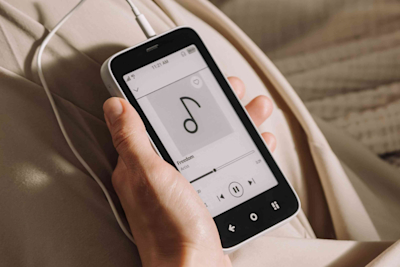
Your Sense of Self: The Impact of Social Media in Our Life
For the purpose of this article, let’s start by clarifying a very basic definition of what we mean by ‘sense of self’ and ‘social media’. Your sense of self is the way you define who you are, what you do and why you do it. It’s the identity you try to cultivate in your everyday life, for some people it’s driven by their emotions, thoughts and knowledge.
For others, it’s driven by their role in society, their job, whether or not they are a parent and so on. Sometimes, it comes down to our self-esteem, how we view ourselves and how we think others view us. This last part is particularly relevant when we consider the way we present ourselves on social media.
Although you probably know the answer, let’s add a definition for social media. Social media platforms are websites and apps that allow people to communicate and share information using the Internet, usually on a mobile phone, tablet or computer. Signing up usually involves inputting some personal information and an avatar of yourself to create a ‘profile’, ‘bio’ or ‘account’.
This is where you begin to build your online sense of self. Social media profiles can be private, public or a mixture, depending on the platform. Some well known platforms are Twitter, Facebook, Instagram (owned by Facebook), LinkedIn, and Tumblr. Pinterest could be described as social media but it’s more of a search engine. Reddit could also be described as social media but it’s more of a forum. So, the definition of the term does cross over to a certain extent.
Does any of this sound familiar to you?
You wake up, you unlock your phone and you start your day.
Let’s face it, we’ve all been there. If you haven’t, consider yourself lucky, this one minor gesture reflects a much greater issue.
Some of us might open an app such as Medito, Headspace or Calm to meditate before we start the day. Although, it can be very easy to fall back to sleep if you try this, speaking from experience. Others might prefer to read the news, as depressing as it might be (politics, fires in the Amazon). The worst thing to do, is to open social media.
Ten minutes in and you’ve read through more useless information than was necessary, you haven’t learned anything, you start to scroll through photographs of people you don’t know. “They look happy”, “that looks fun”, “what a nice place”, “I like their hairstyle”, “why don’t I have a group of friends like that?”, “why can’t I get my hair like that?” Positive statements about other people can very quickly turn into negative questions about ourselves.
Thirty minutes have gone by and you’ve watched a video on how to live your best life, while in bed, half an hour after you were meant to get out of it. You tell yourself that this is how you’re going to live, today is the day you’re going to change your life, you scroll a little further and see something you disagree with.
You leave a comment, a stranger replies, you reply to the stranger, they reply, another stranger replies and before you know it you’re an hour into the most pointless debate of all time. You switch apps, more images, accounts with nothing but filtered selfies, beautiful children and expensive holidays. You look around your room. You finally get out of bed, feeling worse off than when you woke up, with your phone in your hand.
Time Spent on Social Media (TSSM)
What happened? What’s the point of an hour long time sink? Why is it such a common occurrence that time spent on social media affects us in such a negative way? In 2017, a study on this subject was published.
A linear association was found between the number of social media platforms used and depression, an association was also found for anxiety. These associations, with increased TSSM, “remained strong after controlling for total time of social media use”.[1] It is worth mentioning that this was the case for people using more than two social media platforms.
The study was conducted using a group of 1,787 young adults aged 19 to 32, in the U.S. “Depression and anxiety symptoms were measured using the Patient-Reported Outcomes Measurement Information System (PROMIS). [They] assessed use of multiple SM platforms with an adapted Pew Internet Research scale. [They] used ordered logistic regression models to assess associations between use of multiple [social media] platforms and mental health outcomes while controlling for eight covariates, including overall TSSM.”[1]
None of this is new, social media has been around for years (Six Degrees in 1997 is generally considered the first social media platform) and it’s surprising that although there is so much research on this subject, it’s so rarely talked about. There are people suffering from mental illnesses or disorders whose symptoms could be alleviated by simply spending less time on social media.
Of course, this is not the case for all forms of mental illness or disorder but for those of you who have noticed a significant or gradual demise in your well-being, it might be worth investigating.
What is well-being?
Well-being is a word largely associated with ‘woo-woo’ content, particularly online. The problem is that by dismissing it as a term thrown around by green Instagram witches and yoga teachers, you’re missing the point. Accept that your well-being is important and work on improving it.
Well-being is the state of being healthy, comfortable or happy.
Three things most people strive for. Ask yourself about your well-being on a daily basis.
Are you happy? Yes or no? When was the last time you felt happy? Who or what makes you happy? Why do you think that is?
Are you comfortable? Yes or no? How could you make yourself more comfortable?
Are you healthy? Yes or no? What could you do to improve your health?
Another study, entitled ‘Facebook Use Predicts Declines in Subjective Well-Being in Young Adults’ (2013), explains “the human need for social connection is well established, as are the benefits that people derive from such connections.[2][3]
On the surface, Facebook provides an invaluable resource for fulfilling such needs by allowing people to instantly connect. Rather than enhancing well-being, as frequent interactions with supportive “offline” social networks powerfully do, the current findings demonstrate that interacting with Facebook may predict the opposite result for young adults—it may undermine it.”[4]
A lot of people are leaving Facebook or simply using it in a different way, so as not to miss out on public events, to only connect with family members, to run business pages etc. However, the large majority haven’t changed their Facebook habits to work for them and they remain in the never ending scroll cycle. Opening the app whenever they have a free moment, checking for that little red notification flag.
Sometimes, that notification isn’t even for you, it’s an update, a suggestion, something about someone you know and even in the case of Facebook groups, posts from people you don’t know. Yet we still click it because it’s designed that way. We are all sheep, herded through clever design, anticipating the dopamine hit we’ll get once we’ve clicked. Well-being directly affects our sense of self and dopamine plays a huge role in this.
Photo by Maël BALLAND from Pexels
Pretending to be fine online.
Instagram are attempting to create “a less pressurized environment where people feel comfortable expressing themselves” by removing public likes, according to their CEO. Although it’s interesting that they’re attempting to solve problems they created, it’s unclear why they focus on issues such as public likes when their platform needs more work in terms of moderating inappropriate content. A distraction perhaps?
A lot of companies are realizing that they need to change but they aren’t being clear enough as to why. Facebook and Twitter have also ‘experimented’ with the removal of public metrics… Apple introduced their ‘Screen Time’ feature and now we’re able to see how much time we’re wasting on our device, as if we needed more reasons to feel bad about ourselves.
“According to an article by Harvard University researcher Trevor Haynes,[5] when you get a social media notification, your brain sends a chemical messenger called dopamine along a reward pathway, which makes you feel good. Dopamine is associated with food, exercise, love, sex, gambling, drugs … and now, social media. Variable reward schedules up the ante; psychologist B.F. Skinner first described this in the 1930s. When rewards are delivered randomly (as with a slot machine or a positive interaction on social media), and checking for the reward is easy, the dopamine-triggering behavior becomes a habit.”[6]
One thing to remember is that everything is not as it seems, fitness influencers claiming to be all natural take steroids, weight loss success stories are eating disorders disguised with some inspirational hashtags, people with beautiful hair are wearing wigs and extensions, that dinner for two was really for one, the angles, the filters, the holiday photos which don’t show the reality of the food poisoning or arguments.
It’s not real, it’s curated and remember, some people are better curators than others. All of us are projecting what we think people want to see, we create ‘highlight reels’ of our lives and seek validation from people we don’t care enough about to meet up with in real life.
Do those likes, upvotes, shares and retweets really make you feel better about yourself? Probably not.
It’s really important that you don’t compare yourself to others but it’s also important to remember that someone might be comparing their life to yours. Sometimes a little modesty online goes a long way. The phrase ‘keeping up with the Joneses’ is applicable to our digital lives as well in that we might do things we wouldn’t usually do in an attempt to impress people online.
This is often the case when we have a strong desire to fit in and no real understanding of how to achieve a sense of place offline. If you notice social media accounts sharing content you like, you might start sharing similar content too as a way of signifying that you too are interested in that content and therefore part of the group.
This is fine with content such as a particular sport, style or band but what about groups that share content encouraging self harm or eating disorders. Teenagers are particularly vulnerable as they might be more likely to use search terms relating to their feelings of sadness or isolation due to hormonal changes. “There is increasing evidence that the Internet and social media can influence suicide-related behavior.”[7]
If you or someone you know has been negatively affected by social media, please don’t suffer in silence, seek help or ask for advice, ideally offline.
TL;DR
As we know you might’ve already spent a lot of time online today, we’ve written a TL;DR (Too Long; Didn't Read) for you to summarize this article. When we share content, we never really know who will be consuming that content. Your sense of self can be altered due to an overuse of social media, especially if you’re using more than two platforms.
Too much TSSM (time spent on social media) is associated with higher rates of anxiety and depression. It also negatively affects well-being. If you're feeling bad about yourself, sign out of your social media accounts for a while.
Is there anything you’d like to add, have we missed anything? We’d love to know what you think. If you’re interested in sharing your experiences with us or writing a guest post for us, send us an email via hello@mudita.com!
Please feel free to get in touch via social media (send us some photos or videos too), you can find us on Facebook, Twitter and Instagram, let’s connect! To learn more about Mudita, take a look at our website and our other posts. If you enjoyed reading this article, please share and recommend it! We need to go online to find people who’d like to spend more time offline.
Related stories

How Mindful Tech Use Can Set the Tone for 2025
Learn how mindful tech use can enhance your life. Check out our tips for reducing screen time, improving sleep & building meaningful connections in 2025

Ten Simple Habits to Change Your Life
Transform your life with ten simple habits. Boost mindfulness, health, and well-being with phone-free mornings, intentional connections, and more.

Mudita Kompakt Price Reveal
Mudita announces pricing for its new mindful phone, Mudita Kompakt, designed for digital well-being and privacy.
If you'd like to receive the best stories from our blog, keep up to date with our progress and get notified about our product releases and special discounts.